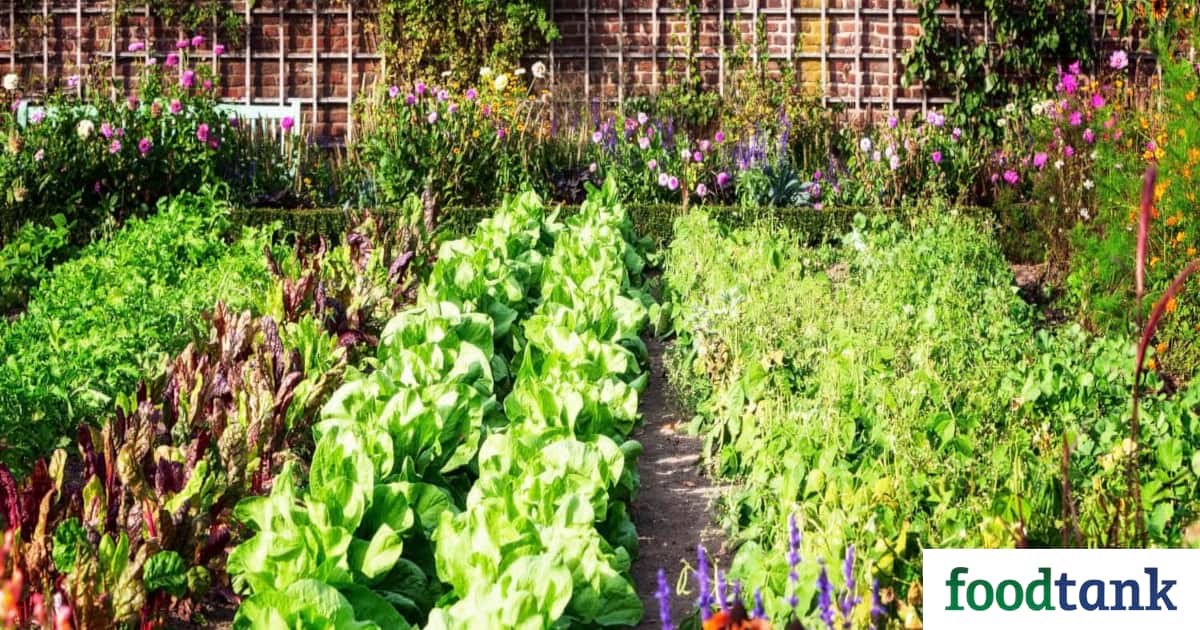1000’s of people worldwide are gardening to develop meals and curb native climate change as part of nonprofit Inexperienced America’s Native climate Victory Gardens advertising and marketing marketing campaign.
For tons of of years, gardeners all through the globe have used climate-friendly methods to feed themselves. Launched in 2018, the Native climate Victory Gardens advertising and marketing marketing campaign connects contributors persevering with these traditions in 36 worldwide areas.
It encompasses about 8,200 gardens in homes, colleges, parks, group amenities, corporations, and prisons. The gardens fluctuate from tiny balcony areas to large rural plots, nonetheless collectively, they span over 1,700 acres and draw down higher than 4,300 tons of carbon yearly—equal to the greenhouse gasoline emissions from driving 36 million miles.
“We wished to empower individuals to take movement,” Inexperienced America’s meals campaigns director Jes Walton tells Meals Tank. “We knew gardening would give individuals a tangible reference to the pure world and a bit of the native climate reply.”
Native climate Victory Gardens targets to include most people in small-scale regenerative agriculture, she says, which includes strategies like defending soils by planting cowl crops. This mode of meals manufacturing removes planet-warming carbon from the ambiance and retailers it inside the soil and crops by means of photosynthesis, supporting a numerous superior of soil organisms and healthful crops.
Cultivating meals to grab carbon and wrestle native climate change is an evolving technique, Walton says. Inexperienced America hopes that gardening regeneratively will “create familiarity that allows regenerative agriculture to take keep further shortly as quickly because it’s extensively obtainable to the client,” she says.
Native climate victory gardening moreover reduces emissions by avoiding dear pesticides, herbicides, and synthetic fertilizers, she says, since making and distributing them takes an infinite amount of vitality. Instead of buying polluting fertilizer, native climate victory gardeners enhance soils with do-it-yourself compost.
Inexperienced America modeled the advertising and marketing marketing campaign on world-wars-era victory gardening. World Warfare II observed 20 million gardeners supplying roughly two-fifths of the nation’s current meals and confirmed “the massive potential for collective movement,” Walton tells Meals Tank. “If we did that in an inclusive and ecological method, the affect on the native climate, our communities, biodiversity, and pollinators may be unimaginable.”
Some criticize victory gardens for his or her militarism, reliance on harmful chemical compounds, racist land grabbing from Japanese-American farmers, and exploitation by companies to promote packaged meals consumption. Japanese People grew many important commodities sooner than the federal authorities confined 1000’s in internment camps following the Pearl Harbor strike, Walton says. Suggested that the farmers had become troopers, white civilians took their land and turned to victory gardening to counter meals shortages and help the battle effort.
“We must always assemble a higher instantly and future by learning lessons from our disturbing earlier,” Walton says. “Our climate-focused advertising and marketing marketing campaign turns the distinctive victory gardens on their head. We’re enhance native meals packages from the grassroots stage, encouraging all people to take part for the worldwide good.”
No matter its American roots, the push now consists of varied worldwide efforts. In Nigeria, Treasured Agronomic Ventures grows pure produce and furthers consciousness of regenerative farming. In Egypt, artist Mohamed Magdy cultivates produce like bananas, tomatoes, peppers, greens and squash. And in Sri Lanka, native climate activist Ruwan Nishantha Gamage tends to an infinite residence yard that features a broad array of greens and fruits.
On account of it boosts meals entry, widespread wellbeing, and kids’s education, gardening has unfold via the pandemic and expanded the advertising and marketing marketing campaign, she says. With lockdowns in place and grocery shares dwindling, yard offers flew off cupboards ultimate spring.
“Many people are experiencing the acute impacts of this world nicely being catastrophe and realizing the impacts of the native climate catastrophe are ongoing and one factor we’ll should reckon with as quickly as this further speedy danger of the virus is beneath administration,” Walton tells Meals Tank. “I’m seeing quite a few new environmentally-conscious gardeners looking for belongings to yard in a way that treads calmly on the planet.”
Over the following couple of years, Inexperienced America intends to collaborate with group organizations to facilitate gardening in metropolis neighborhoods experiencing meals insecurity. The initiative plans to confederate with cities as successfully to incorporate gardening of their native climate and progress strategies.
The non-profit provides gardening belongings by its website and Fb group. Aspiring gardeners can pay money for steering from a gardener they know, akin to a relative or neighbor, Walton says. Native gardening groups, group gardens and Grasp Gardener packages present suggestion, too. To handle motivation, she recommends that folks stick to produce they’re excited to eat and take into account that every rising season presents the possibility to be taught from an experiment, even when it fails.
“Whatever the means you slice it, gardening could also be good for folk and the environment—if executed correct,” she says. “For lots of, as quickly as they get hooked, gardening turns into loads higher than a pastime. I encourage of us to dive in and use nature as their teacher.”
{Photograph} courtesy of Ben Loper
